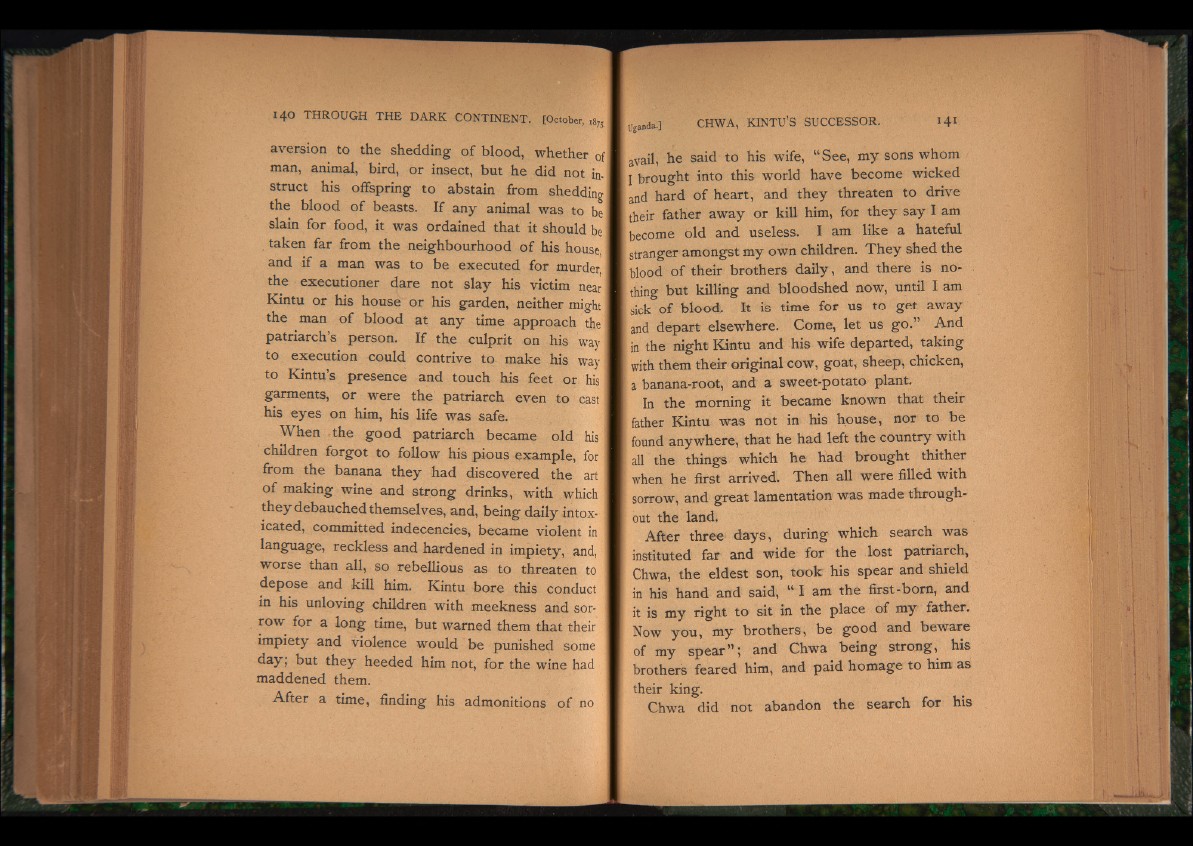
aversion to the shedding o f blood, whether of
man, animal, bird, or insect, but he did not in-j
struct his offspring to abstain from shedding^
the blood o f beasts. I f any animal was to be
slain for food, it was ordained that it should be
taken far from the neighbourhood o f his house I
and if a man was to be executed for murder
the executioner dare not slay his victim near
Kintu or his house or his garden, neither might
the man o f blood at any time approach the
patriarch’s person. If the culprit on his way
to execution could contrive to make his way
to Kintu’s presence and touch his feet or his
garments, or were the patriarch even to cast
his eyes on him, his life was safe.
When the g o o d patriarch became old his
children forgot to follow his pious example, for
from the banana they had discovered the art
o f making wine and strong drinks, with which
th ey debauched themselves, and, being daily intoxicated,
committed indecencies, became violent in
language, reckless and hardened in impiety, and,
worse than all, so rebellious as to threaten to
depose and kill him. Kintu bore this conduct
in his unloving children with meekness and sorrow
for a long time, but warned them that their
impiety and violence would be punished some
day; but th ey heeded him not, for the wine had
maddened them.
A fte r a time, finding his admonitions o f no
avail, he said to his wife, “ See, my sons whom
I brought into this world have become wicked
and hard o f heart, and th ey threaten to drive
their father away or kill him, for they say I am
become old and useless. I am like a hateful
stranger amongst my own children. T h e y shed the
blood o f their brothers d aily, and there is nothing
but killing and bloodshed now, until I am
sick o f blood. It is time for us to g et away
and depart elsewhere. Come, let us g o .” And
in the night Kintu and his wife departed, taking
with them their original cow, goat, sheep, chicken,
a banana-root, and a sweet-potato plant.
In the morning it became known that their
father Kintu was not in his house, nor to be
found anywhere, that he had left the country with
all the things which he had brought thither
when he first arrived. Then all were filled with
sorrow, and great lamentation was made throughout
the land,
After three d a y s , during which search was
instituted far and wide for the lost patriarch,
Chwa, the eldest son, to o k his spear and shield
in his hand and said, “ I am the first-born, and
it is my right to sit in the place o f my father.
Now yo u , my brothers, be good and beware
of my sp ear” ; and Chwa being strong, his
brothers feared him, and paid homage to him as
their king.
Chwa did not abandon the search for his